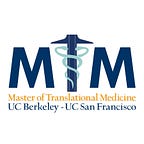MTM Student Feature: Varun Govil, Class of 2021
This essay was submitted to the 2021 Lasker Essay Contest
No Shortcuts to Good Science
Tip. First stop. Aspirate. Release. Repeat. I sighed as I walked into my senior-year lab class, resigned to a few hours of pipetting. The head instructor began to walk around, stopping at my bench in the front of the classroom. He shook his head disapprovingly as he watched me try to prepare six reactions simultaneously, then forget to pipette the reagents up and down. He paused for a moment, only to say: “You know, there are no shortcuts to good science…” In that moment, a simple knockout screen on a common cell line hardly seemed like “good science”.
As the pandemic has raged on and as science has become an increasingly noticeable part of our lives, I’ve often wondered if we’re doing “good science”. Every time I revisit that interaction, I come back with a new lesson about the type of researcher I should aspire to be.
In the early months of the pandemic, “good science” meant truthful science. The retraction of The Lancelet and NEJM articles discussing the efficacy of hydroxychloroquine was an untimely event that showed real-time harm of spreading inaccurate scientific information, slowing down potentially life-saving clinical trials and sowing confusion amongst clinicians and patients alike. On a personal level, it reaffirmed my commitment to scientific integrity, driving me to become extremely conscientious in my own lab’s data practices and reporting protocols. It has also helped me grow into a more transparent communicator, learning to speak up when difficulties come up or acknowledging mistakes in lab.
As the pandemic wore on, breakthroughs in various technologies began to emerge. It turns out “good science” also meant collaborative science, approaches that spanned disciplines and combined diverse perspectives. Joint efforts between traditional drug discovery and computational scientists helped leverage novel algorithms. For example, Deepmind’s AlphaFold program was able to decipher the spike protein structure, helping accelerate therapeutic development. The speed, scope, and impact of these breakthroughs have inspired me to embrace a more multi-disciplinary framework for my own work with cancer diagnostics. Learning to look across different domains has helped me move away from science in a vacuum, towards a more multi-faceted and nuanced approach to problem-solving. It has helped me dive into fields orthogonal to traditional biology, learning to speak the languages of nano-materials, artificial intelligence, and even neuroscience.
The last few months of the pandemic have added another dimension to “good science”. As vaccine development stalled, I started to recognize that the lack of vaccines or therapeutics for COVID-19 was symptomatic of a much larger problem. Research has shown that only a small fraction of innovation ever makes it into the hands of patients and clinicians. Realizing that “good science” also meant impactful science, I decided to join the Master of Translational Medicine program at UC Berkeley and UCSF, where I have learned how to deploy high-value innovation in a clinical setting.
Learning about the translational framework to go from bench-to-bedside has helped me become more comfortable as a non-linear thinker. Looking at the graveyard of failed medtech and biotech innovations, from non-reimbursed novel COVID screening tests to the rounds of failed vaccine development, has taught me the importance of navigating the web of various stakeholders such as Medicare, patients, and pharmaceutical companies, among others. I have applied that newfound translational foresight to my research, learning to start by deeply understanding the unmet clinical need. As I currently build out a novel liquid biopsy, engaging with patient advocacy groups has given me an acute window into the emotional anguish that patients and caregivers experience on a daily basis. It has empowered me to go beyond the minutiae of the scientific details and helped me connect with my research on a deeper level. Likewise, working with clinicians has instilled a greater motivation for actionable research, building something that can impact their decision-making and improve patient outcomes.
Embracing the power of “good science” has helped me become a more open, more collaborative, and more empowered member of the scientific community. It has taught me to look at problems from various angles, while underscoring the importance of upholding scientific integrity. It has reinvigorated my growth as a scientist and shown me the joy of science with a purpose. As the pandemic wanes and we return to normal, I am confident that “good science” will serve as a strong beacon of hope, empowerment, and resiliency in the years to come.
Connect with Varun on LinkedIn.
